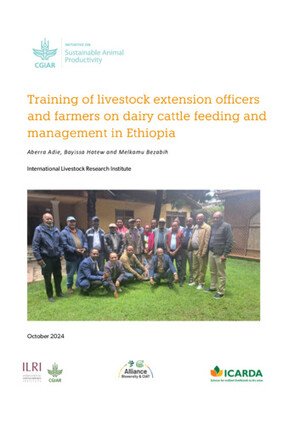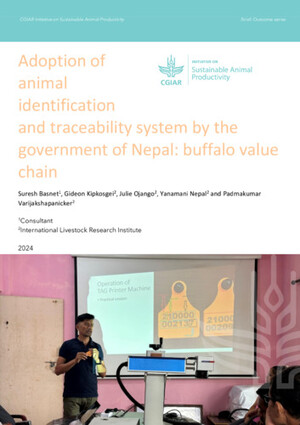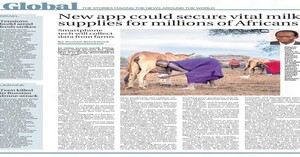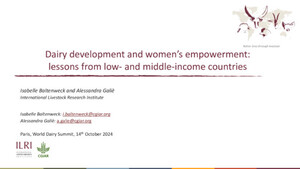
Impact of mastitis control measures on milk production and mastitis indicators in smallholder dairy farms in Kiambu District, Kenya
Abstract
Bovine mastitis and mastitis control were investigated on smallholder farms in central Kenya. After an initial observational study, a clinical trial to assess the impact of three different mastitis control strategies - (1) improved udder hygiene (2) treatment of subclinical cases, and (3) a combination of these - was conducted on 100 randomly selected farms with 332 lactating cows. Before the implementation of control measures, the milk yield was low (mean 6.5 kg/day; median 6 kg/day) and somatic cell counts (SCC) were high, with 80 percent and 43 percent of cows, having milk with SCC greater than 250 X 10(3) cells/ml and 600 X 10(3) cells/ml, respectively. Infectious pathogens were also commonly isolated, with 63 percent of cows being positive for pathogenic bacteria. Neither intervention strategy alone had any effect on mastitis indicators or milk yield. In combination, the measures had some impact, lowering the prevalence of contagious pathogens by 18 percent, but this was not reflected in a significantly increased milk yield, lowered SCC or reduced incidence of clinical mastitis.
Citation
Tropical Animal Health and Production;31(6): 347-361










